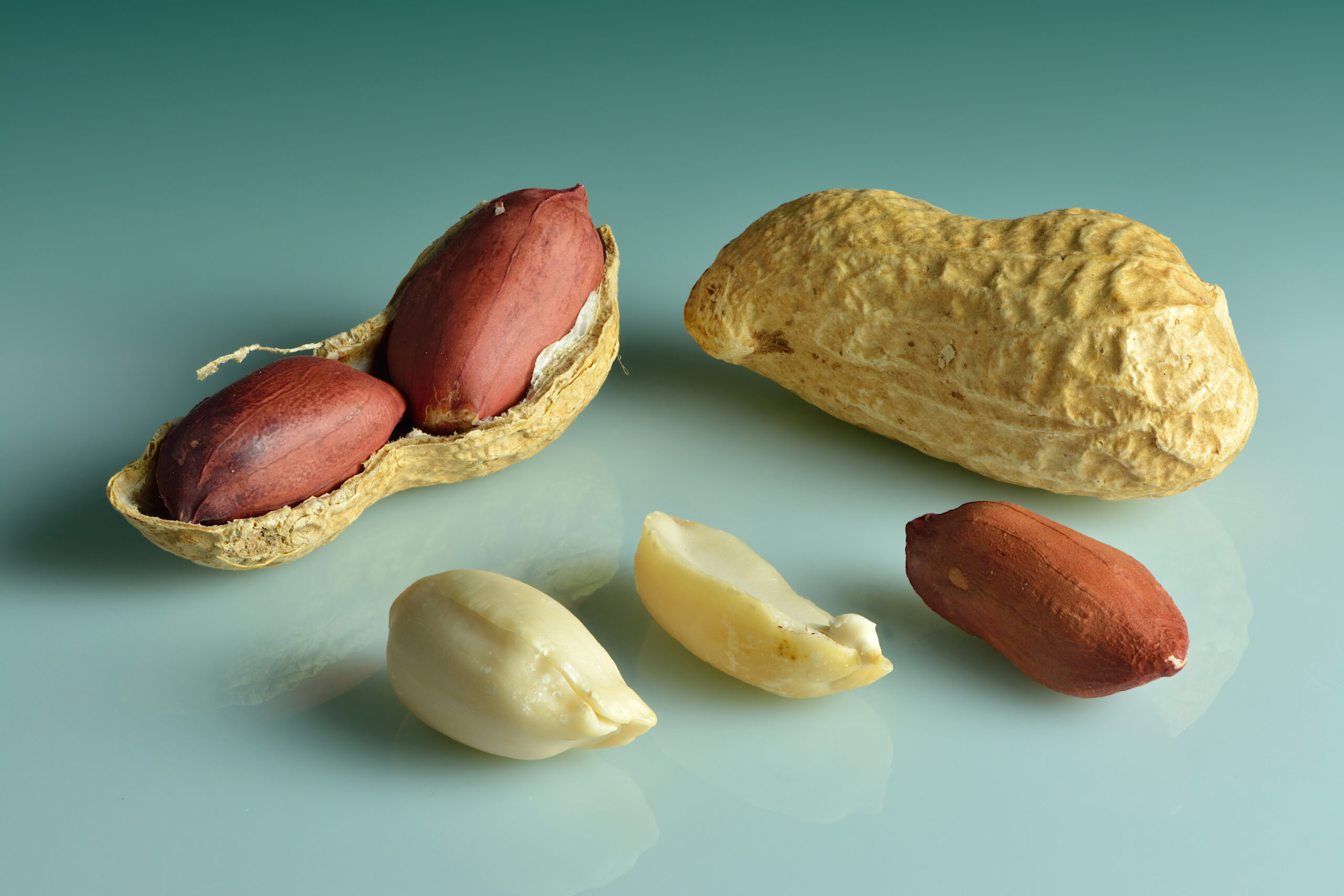Health Benefits of Peanuts
What are the health benefits of peanuts?
Peanuts offer several health benefits when consumed as part of a balanced diet:
- Nutrient-Rich: Peanuts are a good source of protein, healthy fats, fiber, vitamins (such as niacin and folate), and minerals (such as magnesium and phosphorus).
- Heart Health: The monounsaturated and polyunsaturated fats in peanuts can help reduce bad cholesterol levels, lowering the risk of heart disease. They also contain resveratrol, a compound that may improve heart health.
- Weight Management: Despite being calorie-dense, peanuts can help with weight management due to their high protein and fiber content, which can help you feel full and satisfied.
- Blood Sugar Control: Peanuts have a low glycemic index, which means they cause a slower rise in blood sugar levels. This can be beneficial for blood sugar control, especially for people with diabetes.
- Antioxidant Properties: Peanuts contain antioxidants, such as resveratrol and vitamin E, which can help protect cells from damage caused by free radicals.
- Reduced Risk of Gallstones: Some studies suggest that consuming peanuts or peanut butter regularly may reduce the risk of developing gallstones.
- Nutrient Absorption: The healthy fats in peanuts can help the body absorb fat-soluble nutrients like vitamin A, vitamin D, vitamin E, and vitamin K.
- Skin Health: The vitamin E and zinc in peanuts can help maintain healthy skin, promote wound healing, and reduce the signs of aging.
- Brain Health: Peanuts are a good source of niacin, which is important for brain health and cognitive function.
- Muscle Health: The protein in peanuts is essential for muscle growth and repair.
Despite these benefits, it’s important to consume peanuts in moderation, as they are calorie-dense and excessive consumption can lead to weight gain. Some people may also be allergic to peanuts, which can cause severe allergic reactions.
What are the health risks of peanuts?
Peanuts can pose health risks for certain individuals, primarily due to allergies and aflatoxin contamination:
- Allergic Reactions: Peanuts are one of the most common food allergens, and allergic reactions can range from mild symptoms such as itching and hives to severe reactions such as anaphylaxis, which can be life-threatening. People with peanut allergies must avoid peanuts and peanut products completely.
- Aflatoxin Contamination: Peanuts can be contaminated with aflatoxins, which are toxic substances produced by certain molds. Aflatoxin exposure has been linked to an increased risk of liver cancer and other health issues. Proper storage and processing can help reduce aflatoxin levels in peanuts.
- High Caloric Content: Peanuts are calorie-dense, so excessive consumption can contribute to weight gain if not eaten in moderation.
- Digestive Issues: Some people may experience digestive issues such as bloating, gas, or diarrhea from eating peanuts, especially if they are consumed in large quantities.
- Anti-Nutrient Content: Peanuts contain phytic acid, which can bind to minerals like iron and zinc, reducing their absorption. However, this is usually not a concern in a balanced diet.
- Peanut Butter Additives: Some commercial peanut butter products contain added sugars, hydrogenated oils, and other additives that can be unhealthy if consumed in large amounts.
Despite these risks, peanuts can be a healthy part of a balanced diet for those without allergies or sensitivities. It’s important to consume peanuts in moderation and choose natural peanut butter or peanuts without added ingredients for the healthiest option.




